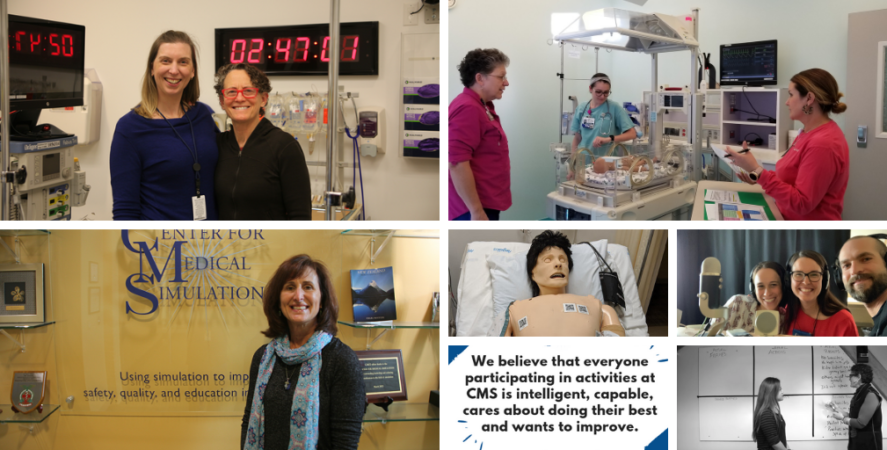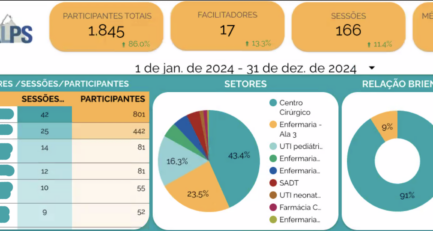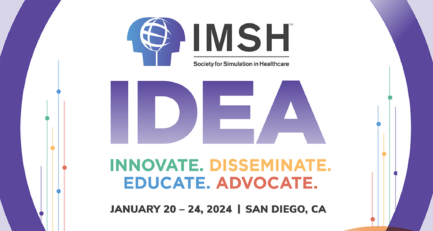
From NASA webcasts to finding frames, here are the Center for Medical Simulation’s most popular blog posts of 2019!
10. Jenny Rudolph to Lead NASA Engineering and Safety Center Webcast
Jenny Rudolph presented, “Getting Better at Getting Better: Caring and Candor in Feedback Conversations” during a live webcast with the National Aeronautics and Space Administration (NASA) Engineering and Safety Center (NESC). The presentation is available for on-demand viewing. Continue reading
9. CMS Alumni Spotlight: Dr. Issam Tanoubi
“Sometimes, we end up realizing our dreams in a roundabout way,” says Dr. Issam Tanoubi, who prior to attending medical school, envisioned himself becoming a film director. While participating in a postdoctoral training, he found his love for cinema and medicine merging into one amazing field: simulation. Continue reading
8. Mary Fey Appointed Senior Director, Teaching and Learning
“It is my great pleasure to announce the appointment of Mary K. Fey, RN, PhD to be the Center for Medical Simulation’s inaugural Senior Director, Teaching and Learning. As our programs grow in size and complexity, we realized we needed a steady hand and an innovator’s eye to integrate faculty and curriculum development across programs. Mary will be joining the Center for Medical Simulation’s Leadership team to bring her unique blend of good-natured challenge, peer support, and keen intellect to guide CMS into the future.” Continue reading
7. Brief Debriefings: Learning Pathways with Jenny Rudolph & Janice Palaganas
FINDING PATHWAYS TO SPEAK UP: The Learning Pathways Grid (or “LPG”) is a tool we use at the Center for Medical Simulation to discover how we often get in the way of our best intentions, reframe our thinking to empower speaking up, and find techniques that are doable to enable us to speak up in the future. Continue reading
6. Debriefing: Embracing Vulnerability and Finding Frames
“Regardless of how smart, talented, and well-trained you are/perform, you still have to talk about how you can improve,” says Breah Chambers, DNP, APRN, FNP-C, Clinical Assistant Professor at the University of Kansas School of Nursing. Continue reading
5. Aubrey Samost-Williams: Creating a Low-Cost Ultrasound Scanner
“The next week it was time to buckle down and work on my resident project while practicing my new debriefing skills. The only problem was, I had no idea what my resident project would be. Spending that week watching learners of all levels and disciplines run through scenarios I was struck by how often they requested an ultrasound. In the clinical world today, it’s hard to find a facility with no access to an ultrasound. With the advent of cheaper and cheaper piezoelectric crystals, we now have access to ultrasounds literally in our pockets that can communicate with our phones.” Continue reading
4. Brief Debriefings: Frame Shift!
In this episode of Brief Debriefings, we talk with Frédérique Gauthier, Audrey Larone Juneau, and Lon Setnik, three participants from the May 2019 Advanced Instructor Course at the Center for Medical Simulation (CMS) in Boston, MA. Continue reading
3. Melanie Barlow: Collaboration and Advancement of Sim
“It has been a whirlwind five and a half months and an experience that both I and my family will never forget. Spending time in Boston and at the Center for Medical Simulation (CMS) has provided so many wonderful opportunities, adventures, and experiences.” Continue reading
I learned about the Debriefing Assessment for Simulation in Healthcare© (DASH) Score Sheet about a year or so ago when conducting an in-depth review of literature to develop a debriefing curriculum for our institution. Now my setting is quite different than most simulation sites as I work for a free-standing, non-profit, pediatric hospital not affiliated with any learning institutions (i.e. medical or nursing school). Our sim team is small and most simulation events are facilitated by our clinical educators in addition to one simulation specialist. However, after a thorough needs assessment, my partner and I decided most of our clinical educators did not have any sort of formal training in debriefing. Hence the reason we developed the debriefing class for them. Continue reading
1. What’s Up with the Basic Assumption™?
“I was recently asked two questions: ‘where did the Basic Assumption come from?’ and ‘isn’t it dangerous to hold the Basic Assumption and just assume that everyone is capable of doing their job correctly?’ Continue reading

